Trello rightfully holds its place among the best productivity apps for teams. Since 2010, the service has remained popular as a tool for task management. As of now, it has reached an impressive 100 million users. However, there are plenty of excellent options on the market. In our review, we present 7 relevant solutions that can serve as strong alternatives to Trello in 2025.
Asana
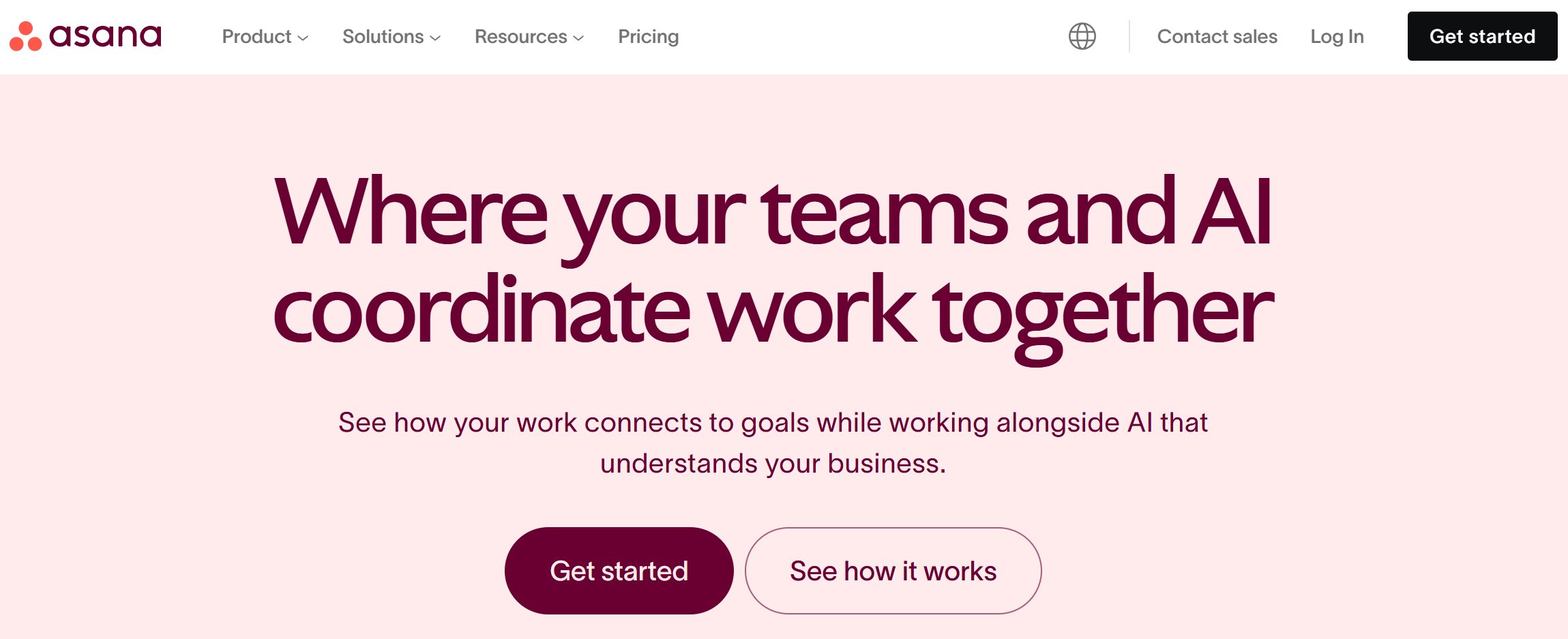
Source: Asana
Asana is one of the most functional and widely known Trello alternatives for managing tasks, projects, and workflows. This cloud-based SaaS platform is ideal for organizing and coordinating teamwork. It handles scaling processes well in both hybrid and fully remote work environments.
Key features:
- A separate task management module allows you to sort tasks by priority and other parameters. It also enables delegation to team members. Additionally, you can create subtasks, add comments and reviews, upload files, and more.
- Asana includes features for monitoring task/subtask completion times and for quickly creating tasks from images or PDFs.
- With the built-in workflow designer, users can create, edit, and organize tasks. They can be visualized as tables, to-do lists, and kanban boards.
- Team communication and collaboration tools include private and group chats, task and subtask commenting, member mentions, activity feed posts, and more.
- Asana provides a set of rules for automating repetitive processes and tasks. Libraries of templates, forms, and scenarios will help optimize work on a project. You can use reporting dashboards to assess the quality of automation.
- The service supports over 270 native integrations and extensions. These include Gmail, Google Calendar, Outlook, Teams, Slack, Jira, and Salesforce. In addition, integrations are available with many other programs for marketing, sales, design, operations management, IT, HR, and other areas.
- Asana AI efficiently creates and customizes automations, adapting workflows to specific projects and company goals. In addition, the smart system generates personalized insights to increase productivity.
Asana belongs to the category of free alternatives to Trello, offering a robust set of features at no cost. A free subscription is available for a team of up to 10 members. It gets unlimited tasks, projects, and messages; access to activity history and cloud space (up to 100 MB/file); basic search filters; and more.
Paid pricing plans:
- Starter (up to 500 participants, all the features of Personal, plus timeline and Gantt charts, process builder, Asana AI, up to 250 automations, and more)—$13.49 per month per user.
- Advanced (all Starter features plus advanced reporting, up to 25,000 automations, up to 100 portfolio projects, and more)—$30.49 per month per user.
Two tariffs for medium and large businesses are presented separately—Enterprise and Enterprise+. Their cost is calculated individually and is provided upon request.
You can set up automatic lead transfer to the Asana platform from Facebook, Google, or TikTok ad accounts. Use the SaveMyLeads service, which offers ready-made integration templates. No technical skills are required to configure the automated data transfer.
ClickUp
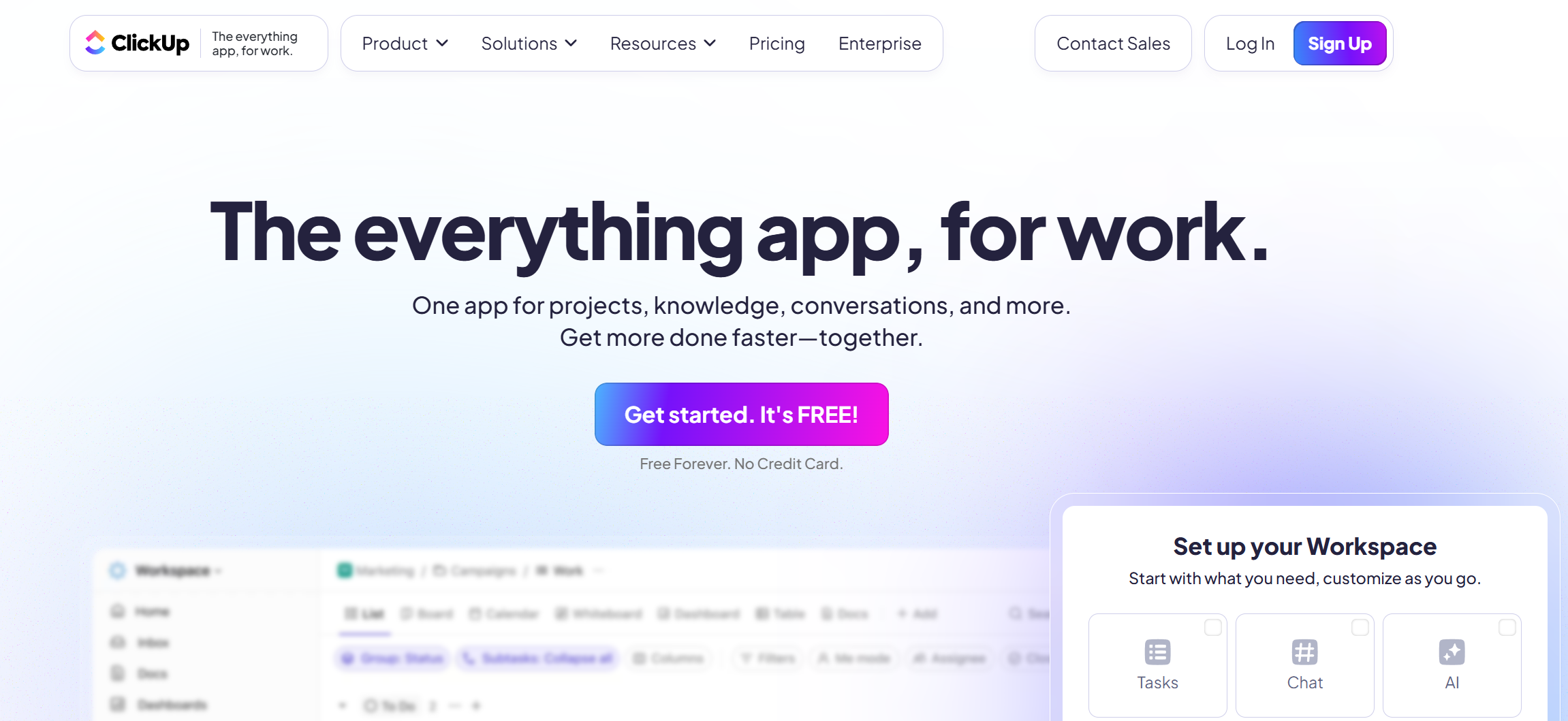
Source: ClickUp
ClickUp is a powerful task management tool with rich functionality and an intuitive interface. More than 10 million users worldwide choose this platform for its flexible multi-level structure and a wide range of project management tools. AI integration and automation capabilities allow you to adapt workflows to any task and team size.
Key features:
- The service provides more than 35 task management tools. They help delegate tasks to colleagues, sort them by priority, monitor progress, change the display format, assign sprint points, add custom fields and statuses. In addition, there are functions for tracking connections between tasks, commenting, uploading files, and adding subtasks.
- ClickUp allows you to flexibly organize collaborative work on a project using a three-level structure: Spaces (teams, departments), Folders (projects, initiatives), and Lists (tasks).
- Users have access to several data visualization formats: tables, lists, kanban boards, Gantt charts, and others.
- The platform contains over 100 pre-installed scenarios for automating work processes: delegating tasks, changing statuses, sending comments, notifications, email newsletters, etc. The AI builder will help develop custom automations with the necessary triggers and actions.
- ClickUp's AI tools automatically organize tasks into lists, find and remove duplicates, and assign relevant tags. They can also create tasks from forms and add them to the appropriate lists.
ClickUp is one of the Trello free alternatives, as it offers users a no-cost subscription plan. It includes 100 MB of storage, unlimited tasks and participants, document collaboration, Kanban board software, calendar, whiteboards, and more.


Paid pricing plans:
- Unlimited (all the features of Free, plus unlimited storage, dashboards, integrations, Gantt charts, custom fields, teams, goals, portfolios, AI tools, and more)—$10 per month per user.
- Business (all the features of Unlimited, plus unlimited teams, advanced dashboards, automations, time tracking, workload management, unlimited message history, and more)—$19 per user per month.
- Enterprise (all Business capabilities plus advanced permissions, conditional logic in forms, Enterprise API, SSO, onboarding, and more)—price is calculated individually and is available upon request.
Wrike
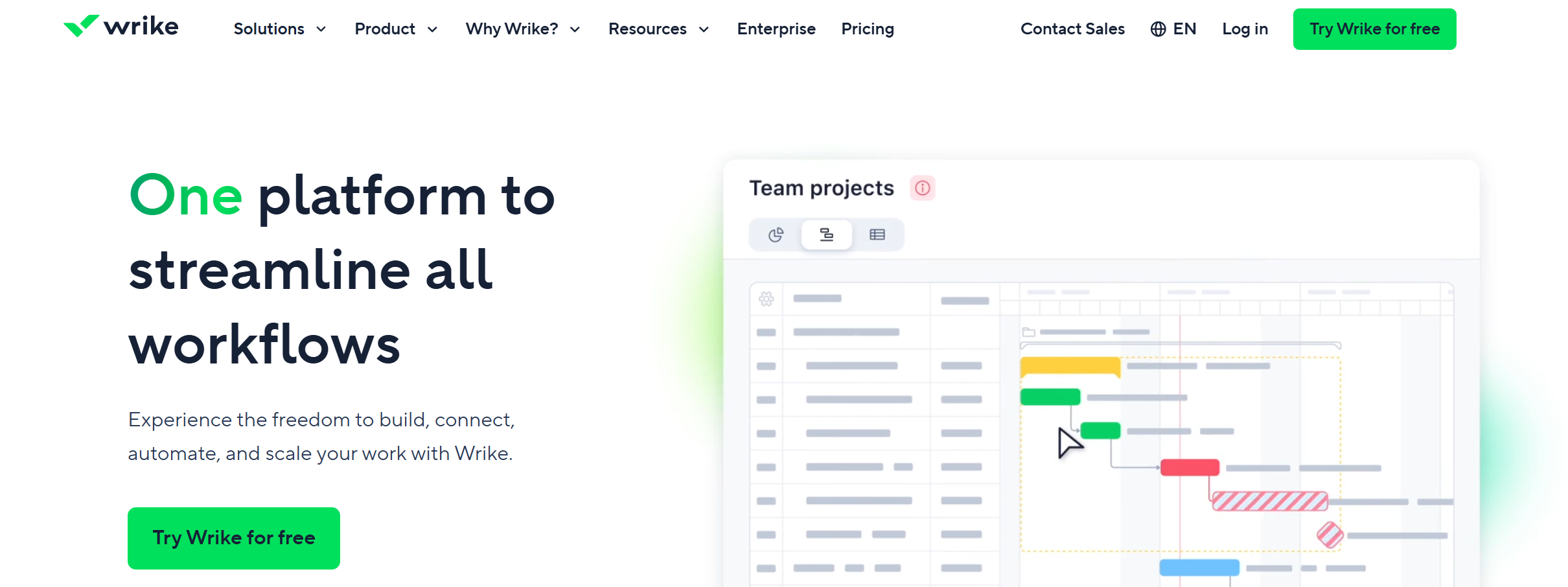
Source: Wrike
Wrike is a cloud-based project management and collaboration platform launched in 2006. This advanced Trello alternative offers powerful tools for planning, tracking tasks, and automating workflows. With its adaptive structure and support for teams of all sizes, Wrike remains one of the most popular solutions in the task management space today.
Key features:
- The platform allows team members to create an unlimited number of items, including projects, tasks, subtasks, and folders. It allows effective monitoring of project stages, task progress, and more.
- Wrike provides a solid library of templates of different types and topics: for project management, Agile teams, marketing departments, IT, creatives, and others.
- Users have access to a range of tools for managing projects, tasks, and subtasks, including workflow templates, branching, routing, custom request forms, and more.
- Visualization tools provide a comprehensive overview of the project using a wide range of graphs, charts, and infographics. They allow you to quickly and easily visualize a large amount of data: task completion, performance indicators, project status updates, and more.
- Built-in AI algorithms effectively automate repetitive processes and create tasks/subtasks based on notes or voice messages. In addition, they generate briefs, plans, task summaries and perform a number of other useful actions.
Wrike offers flexible pricing:
- Free (project and task management, boards, tables, and more).
- Team (2–15 users, unlimited projects, tasks, and subtasks, 50 automation actions per user per month, 2 GB of space per user, AI tools, and more)—$10 per month per user.
- Business (5–200 users, all Team features plus unlimited dashboards, request forms, and spaces, 200 automation actions per user per month, real-time reports, 5 GB of storage per user, and more)—$25 per month per user.
- Enterprise (all Business features plus unlimited users, SAML SSO, 2FA, custom user types, 1000 automation actions per user per month, 10 GB of storage per user, and more)—price is calculated individually and is available upon request.
- Pinnacle (all Enterprise capabilities plus advanced reporting and BI, 1,500 automation actions per user per month, 15 GB of storage per user, Wrike Datahub (10,000 records), QuickBooks and PowerBI integration)—pricing is individual and available upon request.
Notion
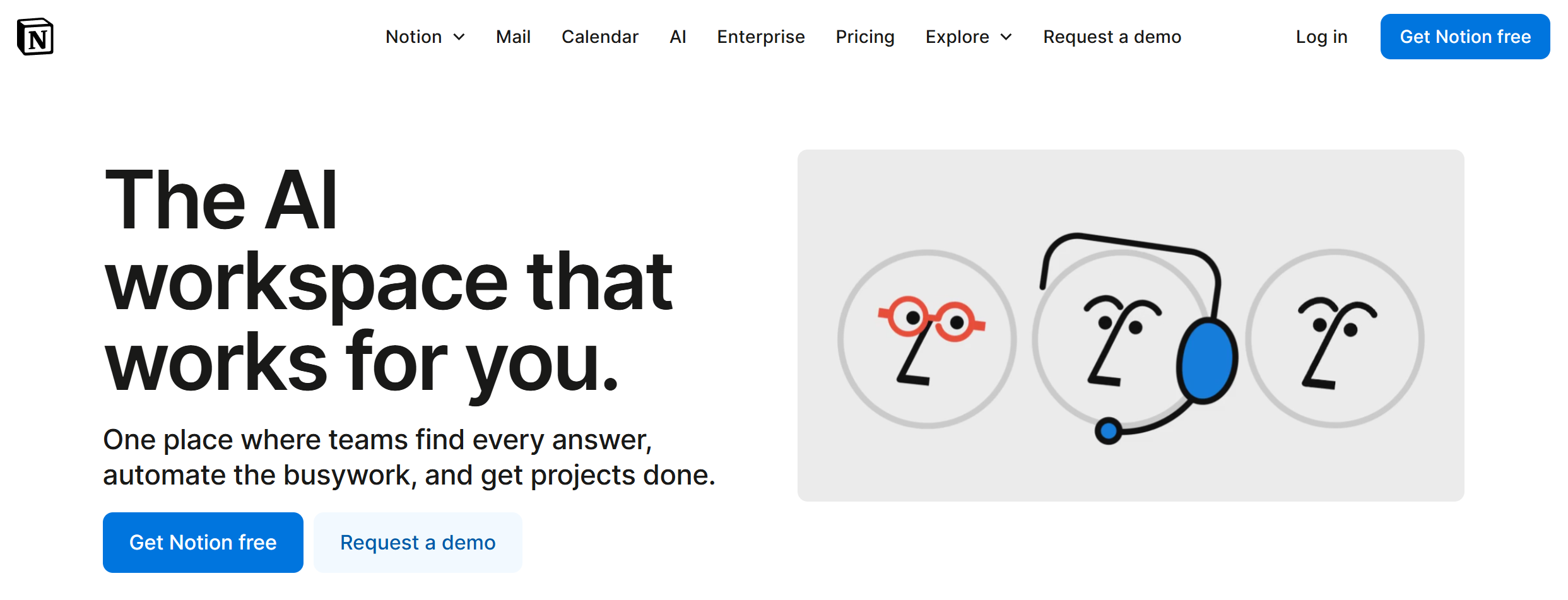
Source: Notion
Among the available alternatives for Trello, Notion stands out in particular. The service was launched in 2016. By the end of 2024, its user base had exceeded 100 million people. The platform provides the ability to manage tasks, documentation, and team processes in a single environment. This makes Notion convenient for both everyday tasks and for building large-scale team ecosystems.
Key features:
- Users can create custom dashboards for task management and work with them without special skills and additional tools.
- The service supports a number of task organization formats: lists, calendars, tables, timelines, Kanban boards, and Gantt charts. Tasks can be easily sorted by priority, category, project, team, and other criteria.
- Notion is a centralized task database. For each task, you can add detailed characteristics. For example, specify its creator, deadline, sprint, priority, responsible team, and more.
- The service allows you to upload more than 50 types of content to projects and tasks: images, videos, code, lists, mathematical functions, and many others.
- The built-in marketplace contains over 30,000 ready-made templates and scenarios for projects, financial plans, content calendars, and more. The platform has over 140 integrations with external systems: Calendly, ClickUp, Figma, IFTTT, Zoom, Jira, and others. They help automate processes, synchronize data, and provide many other benefits.
Notion offers 4 pricing plans:
- Free (collaboration space, basic analytics, up to 10 guests, up to 7 days of history storage, integrations with Slack, GitHub, and more).
- Plus (all Free features plus unlimited blocks and file uploads, up to 100 guests, up to 30 days of history storage, charts, dashboards, custom sites, and automations)—$12 per month per user.
- Business (all Plus features plus bulk PDF export, SAML SSO, advanced analytics, up to 250 guests, up to 90 days of history storage)—$18 per month per user.
- Enterprise (all Business features plus advanced management and security features, audit logs, workspace analytics, and unlimited history storage)—pricing is calculated individually and is available upon request.
Automatically transfer leads directly into Notion from your Facebook, Google, or TikTok ad accounts. Our service, SaveMyLeads, offers pre-built integration templates to simplify the process—no coding or technical expertise needed to get started.
Todoist
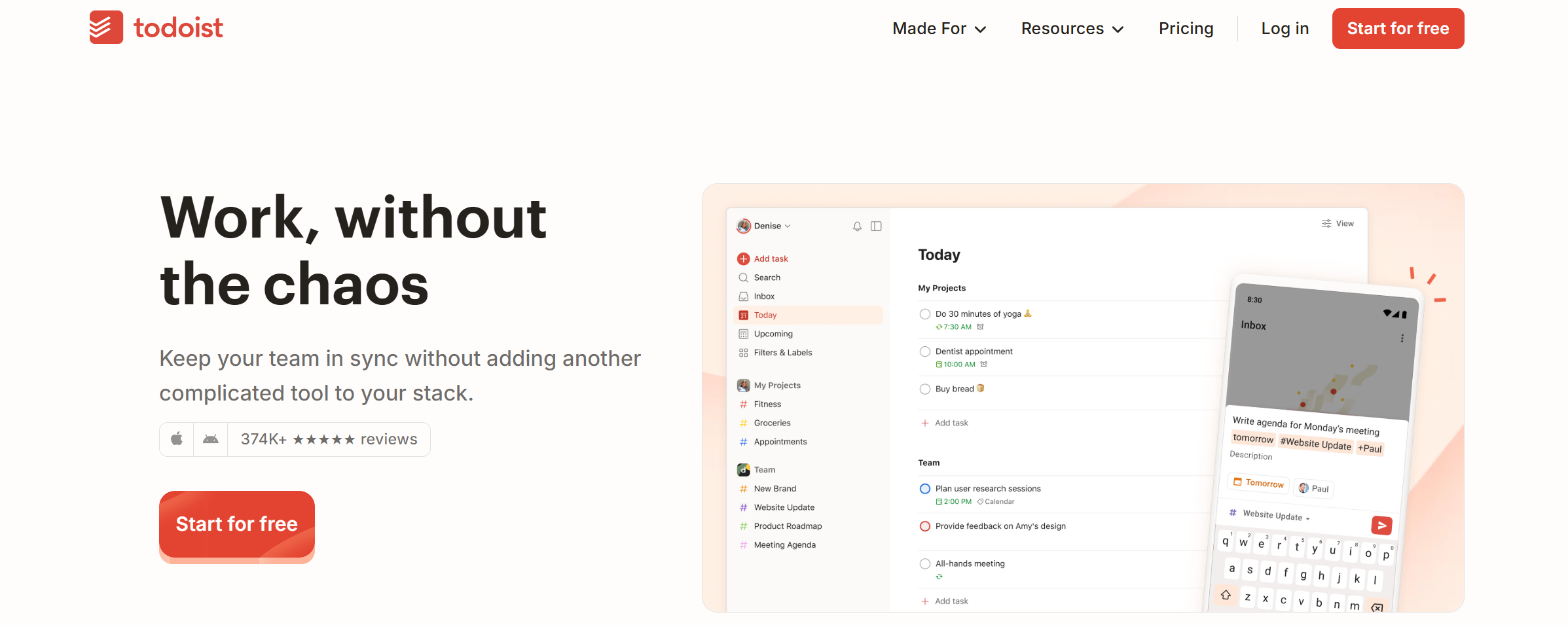
Source: Todoist
Todoist is one of the most popular task management tools of 2025. This platform is used by more than 30 million people who value the convenience of managing work, study, and personal tasks. The service offers a well-thought-out set of tools for planning, prioritizing, and monitoring progress in projects of any scale.
Key features:
- You can create, edit, and organize tasks in projects using desktop and mobile devices. Add-ons for Outlook and Gmail are also available, as well as browser extensions.
- Recurring reminders will help you remember urgent tasks and events. For ease of work, you can distribute large tasks into subtasks.
- Todoist offers a number of task visualization formats: kanban boards, calendar, lists, Gantt charts, and more. For each task, you can specify a deadline, add labels and tags for quick sorting.
- The built-in AI assistant automatically analyzes current projects and tasks. Based on the analysis, it offers recommendations and helps optimize the workflow. The assistant groups similar tasks, divides them into subtasks, suggests new ideas, and performs other auxiliary actions.
- Collaboration tools allow you to comment on tasks and share them with colleagues. They also support uploading files to task cards and sharing them in chat.
- More than 80 native integrations help you flexibly optimize your workflows. The service easily connects with Slack, Google Calendar, Gmail, Outlook, Trello, Dropbox, and Microsoft Teams.
Todoist platform users can choose from three plans:
- Beginner (up to 5 personal projects, task reminders, lists and boards, 3 filters, up to 7 days of activity history storage, built-in email client, and other features)—free.
- Pro (all Beginner features, plus up to 300 personal projects, calendar, custom task reminders, 150 filters, unlimited activity history storage, AI assistant, deadlines, and more)—$5 per month per user.
- Business (all Pro features plus up to 500 team projects, team workspace, shared templates, up to 1,000 project folders, up to 1,000 members and guests, roles and permissions, and more)—$8 per month per user.
Teamwork
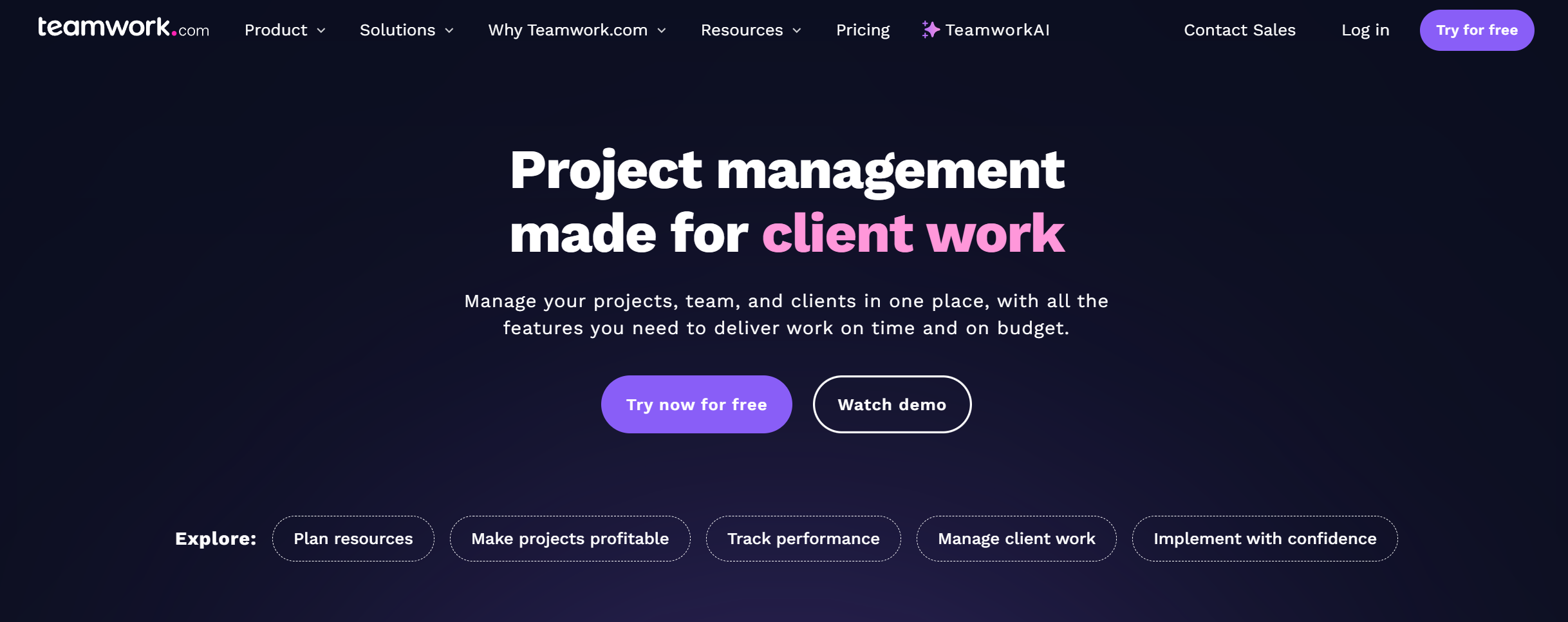
Source: Teamwork
Teamwork is a powerful task management platform that is often considered one of the most functional alternatives to Trello. It offers ready-made tools for project management, teamwork, resource planning, and customer interaction. The service stands out with its well-thought-out reporting system, progress visualization, and fine-tuning of workflows.
Key features:
- Users can create, edit, comment, and delegate tasks to colleagues, as well as split them into subtasks. In addition, it is possible to add custom fields, sort tasks by tags, upload files, and track version history.
- Resource and workload management tools allow you to organize your project work and track its progress using checkpoints. They also support granting access to external participants and creating customized forms for requests, feedback, and other needs.
- Project data in Teamwork is easily visualized in various formats: lists, tables, kanban boards, and Gantt charts. There are separate dashboards for an overview of the entire workload (My Work) and the revenue received (Clients).
- Any project or task can be turned into a template and added to the library for quick access. The platform also offers a catalog of automations for repetitive processes and tools for setting them up from scratch.
- Teamwork has native integrations with popular instant messengers, CRM, accounting tools, cloud storage, Microsoft Office services, and other systems.
The service offers 4 pricing plans:
- Deliver (3+ users, team management, automations and forms, project status reports, and more)—$13.99 per month per user.
- Grow (5+ users, all Deliver features plus advanced reporting and budgeting, workload and resource management, and more)—$25.99 per month per user.
- Scale (all Grow features plus resource scheduler, unlimited custom reports, and more)—pricing is calculated individually and is available upon request.
- Enterprise (all the capabilities of Scale, plus advanced security and SSO options, dedicated infrastructure, premium consulting, and support)—pricing is calculated individually and is available upon request.
Monday.com
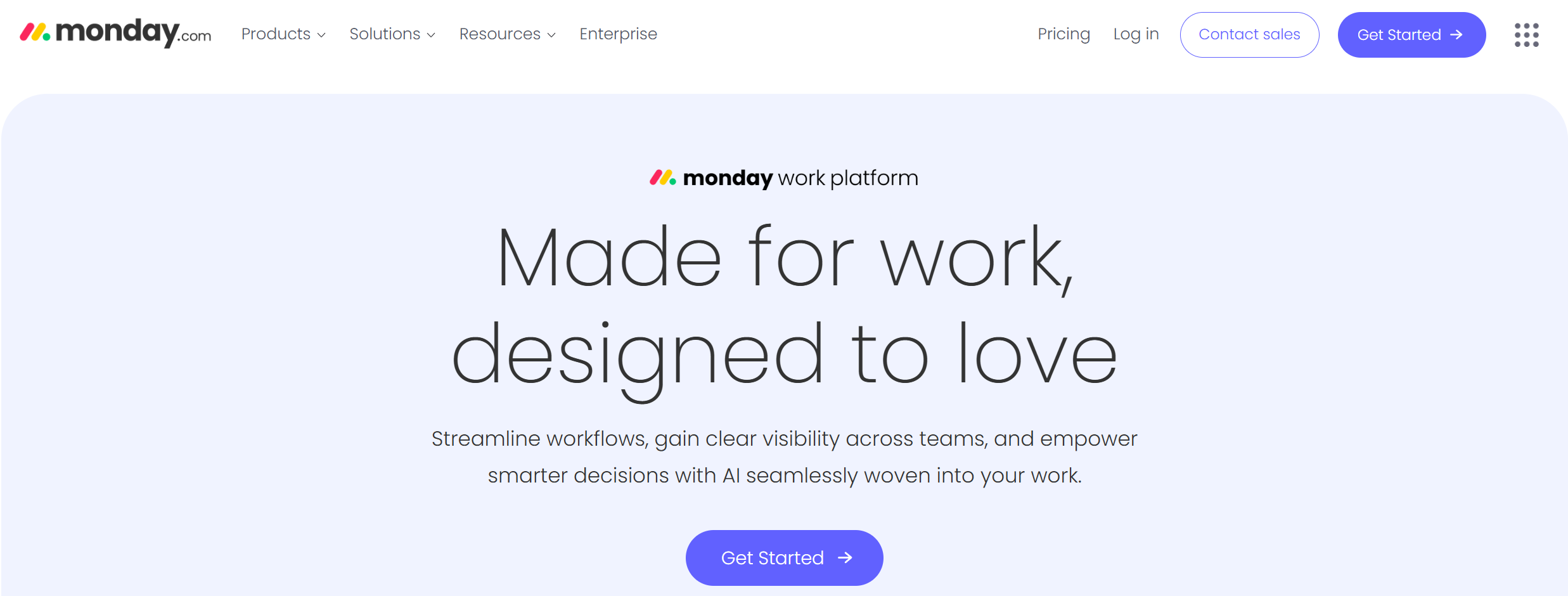
Source: Monday.com
Our review of the best Trello alternatives concludes with the promising project management platform Monday.com. It appeared in 2012 and quickly gained popularity. At the time of writing, it is used by more than 245,000 companies and entrepreneurs around the world—from small businesses to international corporations. The task manager stands out for its flexible data visualization, a rich selection of templates, and powerful capabilities for automating processes.
Key features:
- You can create, track, and manage all your team to-dos and checklists through a convenient centralized interface.
- Monday.com lets you organize tasks into to-do lists using drag-and-drop and set priorities. In addition, the platform allows you to delegate tasks, mark responsible people, set deadlines, and track their completion time.
- Collaboration tools help you interact comfortably and effectively with colleagues while completing tasks. Commenting, status updates, file sharing, and more are available for this purpose.
- Users have access to over 30 formats for displaying project and task data: Gantt charts, timelines, calendars, kanban boards, and more.
- The platform has a solid catalog of project templates and over 70 automation scenarios with flexible customization. In addition, it provides AI tools for optimizing workflows and automation, project monitoring, and risk assessment.
Monday.com offers 5 pricing plans:
- Free (up to 2 users, up to 3 boards, unlimited documents, over 200 templates, 8 column types, and more).
- Basic (all the features of Free, plus unlimited objects, 5 GB of storage, 500 AI credits, and more)—$12 per month per user.
- Standard (all Basic features plus calendar, timeline, and Gantt charts, 250 automation actions per month, 250 integration actions per month, and more)—$14 per user per month.
- Pro (all the features of Standard, plus charts, time tracking, 25,000 actions for automation and integration per month, and more)—$24 per month per user.
- Enterprise (all Pro capabilities plus enterprise automations and integrations, multi-level permissions, advanced reporting and analytics, and more)—pricing is individual and available upon request.
Final Thoughts
Today, the task manager market offers a wide range of choices. Finding worthy alternatives to Trello has become easier than ever. In 2025, both simple solutions for personal tasks and powerful tools for managing projects in large teams are available.
All the services presented in the review are distinguished by their advanced functionality. They offer convenient task visualization, support for automation, and integration with other systems. Many of them also implement modern AI tools. Many provide free plans—a great solution for a start or small teams.
